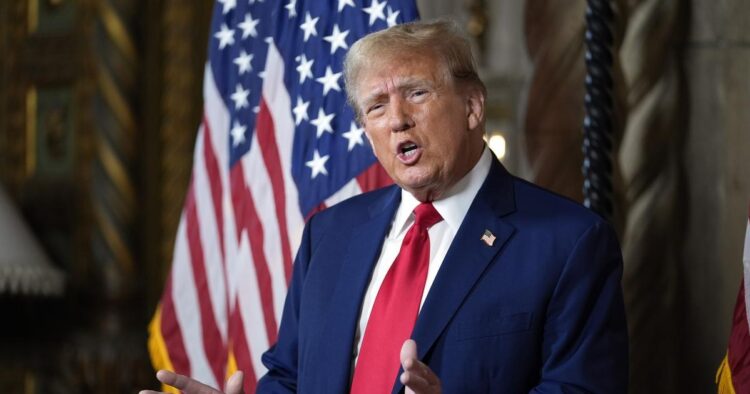Former US President Donald Trump is making headlines once again, this time by urging the Supreme Court to shield him from criminal prosecution regarding his efforts to overturn the 2020 election results. Trump’s legal team argues that he cannot be charged because he was acting within his official capacity as president during the lead-up to the Capitol assault on January 6, 2021.
In a 52-page filing, Trump’s lawyers emphasized that denying him criminal immunity would not only incapacitate future presidents but also subject them to potential blackmail and extortion while in office. They claimed that such a denial would lead to years of post-office trauma inflicted by political opponents.
The timing of the arguments, set for April 25, is crucial, as it could impact the possibility of a trial before the upcoming November elections. Special Counsel Jack Smith is seeking a swift victory to proceed with the trial this year. However, the Supreme Court’s recent order to halt the prosecution until a ruling complicates the matter. Notably, the Supreme Court comprises three justices appointed by Trump.
Trump’s camp is pushing for a delay in the trial until after the election season gains momentum. This delay tactic raises the possibility that if Trump were to win the presidency again, he could potentially order the Justice Department to drop the case against him, adding to the legal complexities surrounding his presidency.
A recent poll conducted by Bloomberg News/Morning Consult revealed that more than half of voters in seven swing states would not support Trump if he were convicted of a crime. This underscores the political ramifications of the legal battle Trump faces.
Despite a federal appeals court ruling that Trump could be prosecuted for his alleged attempts to unlawfully retain power, his legal team remains steadfast in their defense. The panel of judges stated that granting immunity to Trump would essentially give him unchecked authority to commit crimes, undermining the democratic process.
While Trump’s brief primarily seeks dismissal of the four-count indictment, his lawyers have also outlined alternative approaches that could prolong the legal proceedings, possibly postponing a trial before November.
One such approach suggested by Trump’s legal team is for the Supreme Court to affirm the existence of criminal immunity but leave it to lower courts to determine its application to Trump’s case. This strategy aims to delay a trial and maintain uncertainty around the legal outcome.
The Supreme Court’s decision to hear the case indicates its interest in addressing the issue of whether former presidents are entitled to criminal immunity. This pivotal question has never been definitively answered by the court, although it ruled in 1982 that presidents enjoy complete immunity from civil suits for actions within the scope of their official duties.
As Trump’s legal battle unfolds in the highest court of the land, the outcome will not only shape his personal fate but also set a precedent with far-reaching implications for presidential powers and accountability.

















Comments